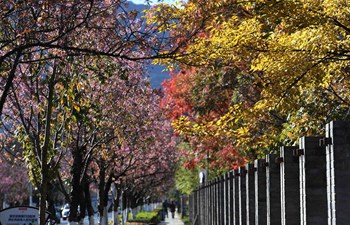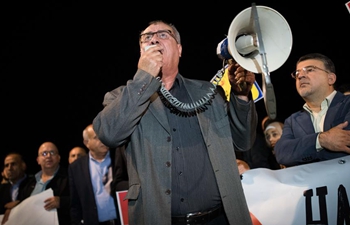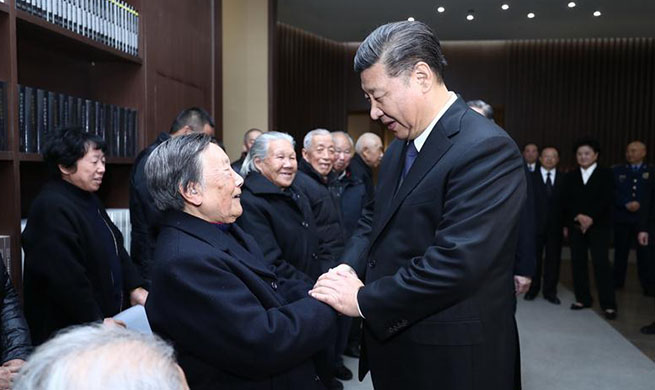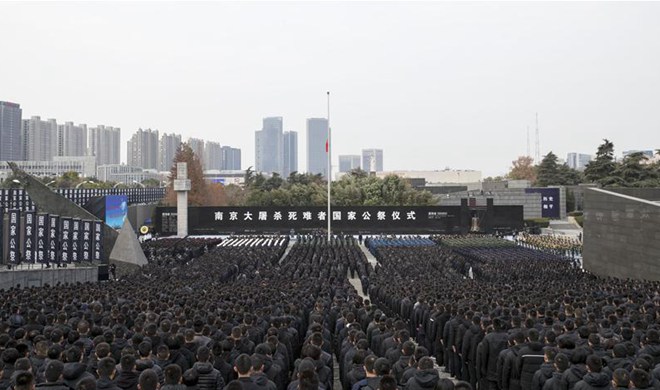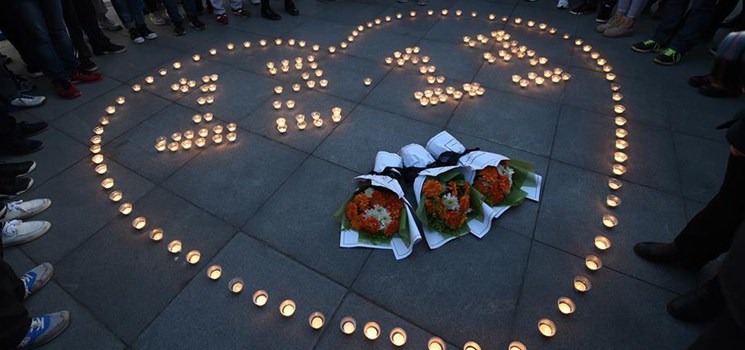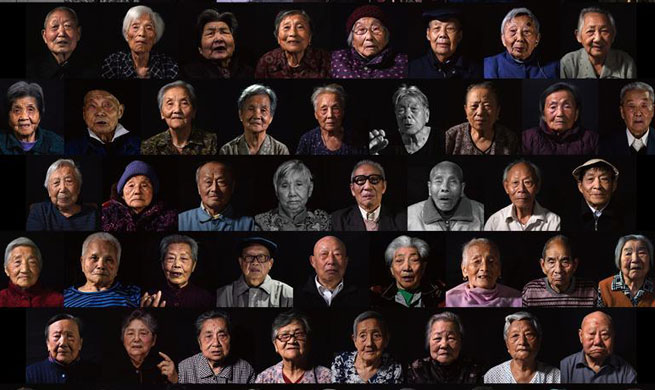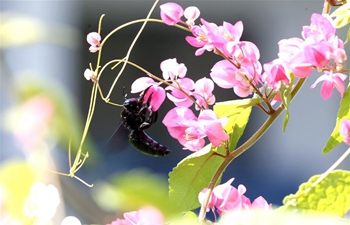by Denis Elamu
JUBA, Dec. 13 (Xinhua) -- South Sudan on Wednesday said it will dialogue with humanitarian agencies to achieve flexible ground on hiked work permit fees that threaten to affect humanitarian work in the war-torn country.
Hussein Mar Nyuot, Minister of Humanitarian Affairs, admitted there is confusion within the government on how to implement the work permit fees, adding that development partners visiting the country for short periods will be exempted from paying for work permit.
"Our understanding of work permit is that those who are resident here, who are working on some programs, indeed you apply for work permit," Nyuot said during the launch of the 2018 Humanitarian Response Plan (HRP) totaling 1.72 billion U.S. dollars.
"Those who are coming to oversee some projects, say a medical person wanting to operate here for one week, you don't require a work permit. What you require is entry visa," he added.
South Sudan Relief and Rehabilitation Commission (RRC) issued a December ultimatum to more than 1,000 expatriates to pay the work permit hiked by the Ministry of Labor from the previous 100 dollars to 4,000 dollars.
"NGOs and the government are not disagreeing on the fees but the category of people supposed to pay for work permit," Nyuot added.
Meanwhile, UN Humanitarian Coordinator Alain Noudehou said the change in work permit fees could complicate humanitarian aid to 7 million people in need of assistance in 2018.
"An increase to the work permit fee to NGOs will take away resources from the needs we have to address," Noudehou said.
According to the 2018 HRP, nearly 5.4 million South Sudanese and 304,560 refugees require food and livelihood support next year and that although localized famine was stopped in 2017, the Integrated Food Security Classification (IPC) shows record numbers of people in crisis.
"Whereas 32 percent of South Sudanese people were recorded as severely food insecure in January 2017, projections show an alarming 48 percent of the population in the same condition in early 2018," it said.
Nyuot also appealed to donors for more support toward the suffering South Sudan population as conflict continues since outbreak in December 2013.




